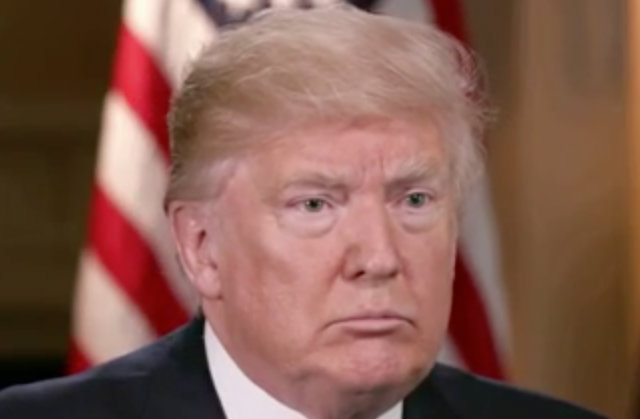 A Washington Post report said that President Donald Trump has been asking around about his pardon powers. Specifically, his ability to pardon family members, and even himself, in connection with the Russia investigation.
A Washington Post report said that President Donald Trump has been asking around about his pardon powers. Specifically, his ability to pardon family members, and even himself, in connection with the Russia investigation.
It appears that this may just be a general curiosity at the moment, as the source for the information said, “This is not in the context of, ‘I can’t wait to pardon myself.'” Still, the idea of the President of the United States pardoning himself to escape prosecution before an investigation is even over may send shivers of outrage down the spines of his critics and political opponents.
It shouldn’t.
In fact, if President Trump were to pardon himself, it would make him ripe for impeachment. No, I don’t mean that pardoning himself would amount to obstruction of justice or some other offense that he could theoretically be charged with if Congress stretches the facts to fit some statute. I mean that the pardon itself could be all the evidence Democrats need to oust Trump.
See, what a lot of people don’t realize is that a pardon isn’t simply a get out of jail free card that says a person has done nothing wrong. Quite the opposite, in order to accept a pardon, a person has to admit wrongdoing. According to the Supreme Court’s 1915 decision in Burdick v. United States, a pardon “carries an imputation of guilt; acceptance a confession of it.”
That means that if Trump were to pardon himself for an offense, he would have to confess to it first. This element was a key factor in President Gerald Ford‘s decision to pardon President Richard Nixon. It assured that Nixon at least fess up to his crimes before being absolved.
This is important because Section II, Article 2 of the Constitution says that the President “shall have the power to grant reprieves and pardons for offenses against the United States, except in cases of impeachment.” So while Trump may be able to use a pardon to protect himself from federal prosecution, it wouldn’t prevent him from being impeached.
The impeachment process, of course, demands evidence in order to file charges, or articles of impeachment, and evidence would then be brought before the Senate, who would vote on whether or not to remove the President from office.
What stronger evidence against a President could there be than an official, on the record admission that he did something wrong?
I wonder if Trump’s lawyers told him that.
Ronn Blitzer is the Senior Editor of LawNewz.com and a former prosecutor in New York City. Follow him on Twitter: @RonnBlitzer
This is an opinion piece. The views expressed in this article are those of just the author.